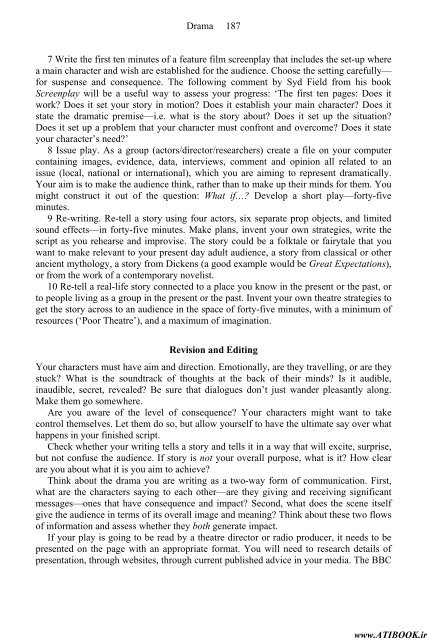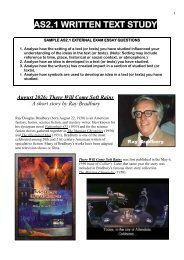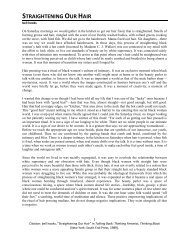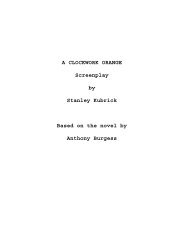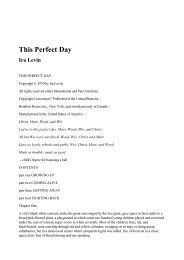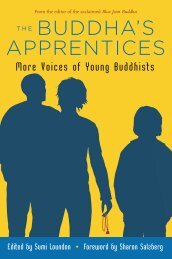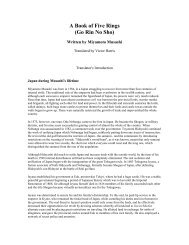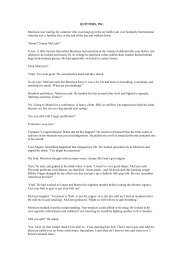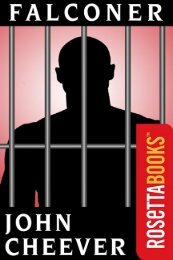9780415317856_the_routledge_creative_writing_coursebook
9780415317856_the_routledge_creative_writing_coursebook
9780415317856_the_routledge_creative_writing_coursebook
Create successful ePaper yourself
Turn your PDF publications into a flip-book with our unique Google optimized e-Paper software.
www.ATIBOOK.irDrama 1877 Write <strong>the</strong> first ten minutes of a feature film screenplay that includes <strong>the</strong> set-up wherea main character and wish are established for <strong>the</strong> audience. Choose <strong>the</strong> setting carefully—for suspense and consequence. The following comment by Syd Field from his bookScreenplay will be a useful way to assess your progress: ‘The first ten pages: Does itwork? Does it set your story in motion? Does it establish your main character? Does itstate <strong>the</strong> dramatic premise—i.e. what is <strong>the</strong> story about? Does it set up <strong>the</strong> situation?Does it set up a problem that your character must confront and overcome? Does it stateyour character’s need?’8 Issue play. As a group (actors/director/researchers) create a file on your computercontaining images, evidence, data, interviews, comment and opinion all related to anissue (local, national or international), which you are aiming to represent dramatically.Your aim is to make <strong>the</strong> audience think, ra<strong>the</strong>r than to make up <strong>the</strong>ir minds for <strong>the</strong>m. Youmight construct it out of <strong>the</strong> question: What if…? Develop a short play—forty-fiveminutes.9 Re-<strong>writing</strong>. Re-tell a story using four actors, six separate prop objects, and limitedsound effects—in forty-five minutes. Make plans, invent your own strategies, write <strong>the</strong>script as you rehearse and improvise. The story could be a folktale or fairytale that youwant to make relevant to your present day adult audience, a story from classical or o<strong>the</strong>rancient mythology, a story from Dickens (a good example would be Great Expectations),or from <strong>the</strong> work of a contemporary novelist.10 Re-tell a real-life story connected to a place you know in <strong>the</strong> present or <strong>the</strong> past, orto people living as a group in <strong>the</strong> present or <strong>the</strong> past. Invent your own <strong>the</strong>atre strategies toget <strong>the</strong> story across to an audience in <strong>the</strong> space of forty-five minutes, with a minimum ofresources (‘Poor Theatre’), and a maximum of imagination.Revision and EditingYour characters must have aim and direction. Emotionally, are <strong>the</strong>y travelling, or are <strong>the</strong>ystuck? What is <strong>the</strong> soundtrack of thoughts at <strong>the</strong> back of <strong>the</strong>ir minds? Is it audible,inaudible, secret, revealed? Be sure that dialogues don’t just wander pleasantly along.Make <strong>the</strong>m go somewhere.Are you aware of <strong>the</strong> level of consequence? Your characters might want to takecontrol <strong>the</strong>mselves. Let <strong>the</strong>m do so, but allow yourself to have <strong>the</strong> ultimate say over whathappens in your finished script.Check whe<strong>the</strong>r your <strong>writing</strong> tells a story and tells it in a way that will excite, surprise,but not confuse <strong>the</strong> audience. If story is not your overall purpose, what is it? How clearare you about what it is you aim to achieve?Think about <strong>the</strong> drama you are <strong>writing</strong> as a two-way form of communication. First,what are <strong>the</strong> characters saying to each o<strong>the</strong>r—are <strong>the</strong>y giving and receiving significantmessages—ones that have consequence and impact? Second, what does <strong>the</strong> scene itselfgive <strong>the</strong> audience in terms of its overall image and meaning? Think about <strong>the</strong>se two flowsof information and assess whe<strong>the</strong>r <strong>the</strong>y both generate impact.If your play is going to be read by a <strong>the</strong>atre director or radio producer, it needs to bepresented on <strong>the</strong> page with an appropriate format. You will need to research details ofpresentation, through websites, through current published advice in your media. The BBC


